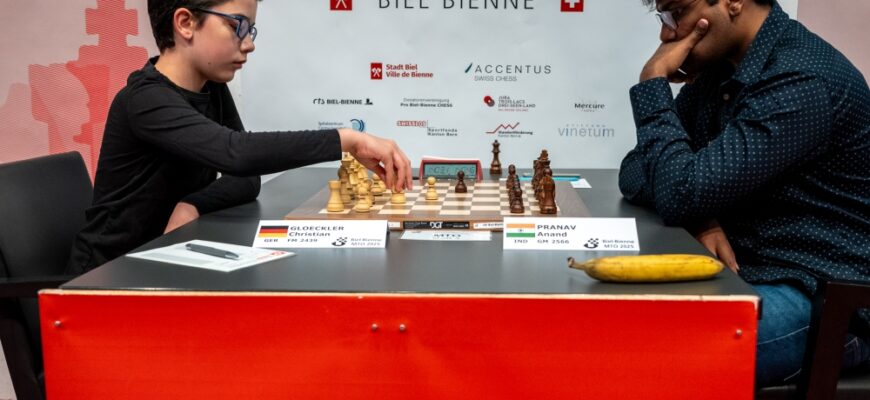While one champion has already emerged in a demonstration of unwavering consistency, the prestigious Biel International Chess Festival`s Grandmaster Masters Tournament (GMT-Masters) is poised for a truly nail-biting, three-way showdown. The penultimate round delivered a series of unexpected twists, completely reshaping the leaderboard and setting the stage for a dramatic conclusion.
Theodorou`s Unblemished Victory in the Challengers
In a more straightforward narrative, the Greek Grandmaster Nikolaos Theodorou has already claimed victory in the Biel Challengers Tournament. His impressive campaign concluded without a single classical game loss – a feat of remarkable consistency that justly crowns him as the deserved winner. His triumph provides a stark contrast to the volatile events unfolding in the main Masters event.
GMT-Masters: A Dramatic Shift in Power
Heading into the seventh round of the GMT-Masters, Grandmasters Vladimir Fedoseev and A.R. Saleh Salem appeared to be in a comfortable joint lead. However, chess, much like life, often delights in upending expectations. Both co-leaders stumbled in their critical matches, creating a vacuum at the top that was swiftly filled by their tenacious competitor, Chithambaram V.R. Aravindh.
Aravindh`s victory over Salem was particularly decisive. Playing with precision and intent, Aravindh meticulously built a steady advantage in the middlegame, compelling Salem to resign after a mere 28 moves. This swift, convincing win was a statement of intent, catapulting the Indian Grandmaster into the sole lead with 27 points and underlining his ambition to clinch the tournament title.
Fedoseev`s Rollercoaster Ride and Murzin`s Precision
Meanwhile, Vladimir Fedoseev endured what can only be described as a protracted, five-and-a-half-hour “rollercoaster” against Volodar Murzin. Despite securing clear advantages in the middlegame, Fedoseev, perhaps grappling with the pressure or simply encountering Murzin`s stout defense, failed to convert his opportunities. The game then dramatically inverted. After a queen exchange, Fedoseev found himself on the defensive, eventually succumbing to Murzin`s more precise play in a time-scramble endgame, resigning two pawns down. This unexpected defeat left Fedoseev tied for second place, sharing it with Salem, and looking up at Aravindh.
The Stakes of the Final Round
This sequence of events sets up an incredibly tense and complex final round. The crucial matchup will be between the two former co-leaders, Fedoseev and Salem. Both Grandmasters now face a simple, yet brutal, imperative: they must win if they hope to emerge as the festival champion. A draw between them would effectively hand the title to Aravindh, assuming he secures at least a draw in his own game.
Aravindh, holding the lead, will play Murzin with the black pieces. A victory would secure his championship, irrespective of the Fedoseev-Salem result. However, the intricacies of the tournament`s tie-break rules add a delightful layer of complexity for those who enjoy mathematical puzzles with their chess: if Aravindh were to draw, he would finish level on points with the winner of the Fedoseev-Salem encounter. In such a scenario, the results from the earlier ACCENTUS Chess960 tournament would come into play, and both Fedoseev and Salem performed better than Aravindh in that format. This means Aravindh cannot afford to be complacent; a draw might not be enough if one of his rivals emerges victorious.
The stage is thus perfectly set for a thrilling conclusion at the Biel Chess Festival. With three top Grandmasters locked in a fierce battle for supremacy, and the tie-break rules adding an extra layer of strategic consideration, chess enthusiasts worldwide await the final moves with bated breath. Who will emerge victorious from this captivating contest?







